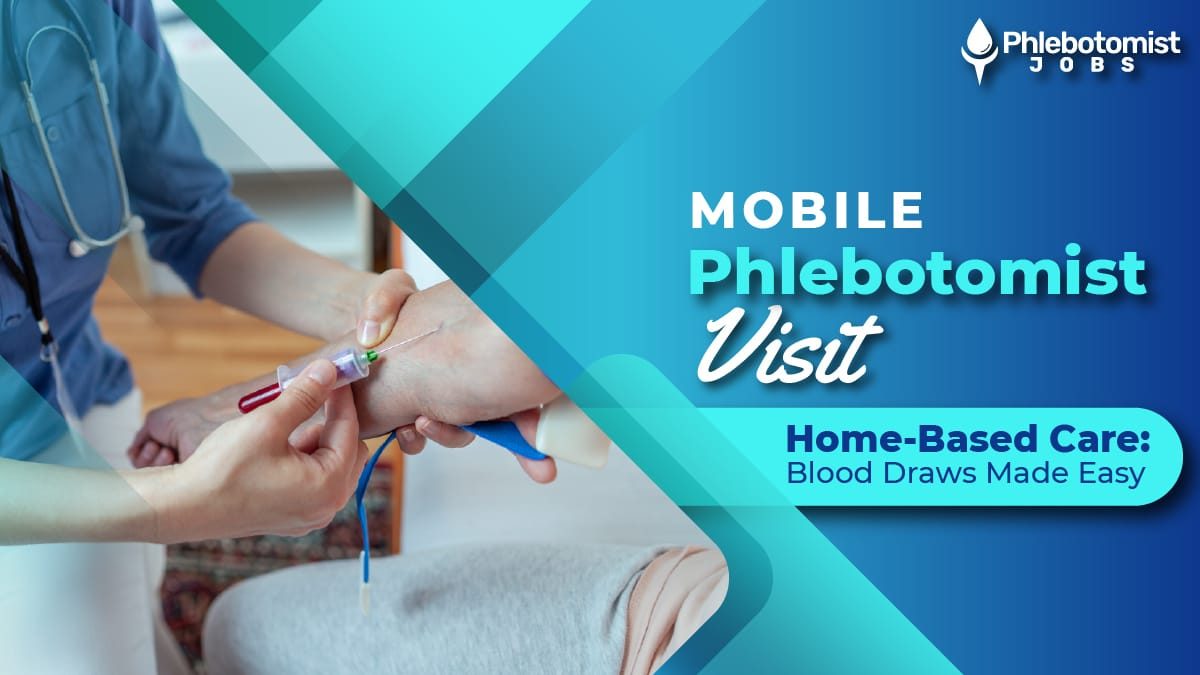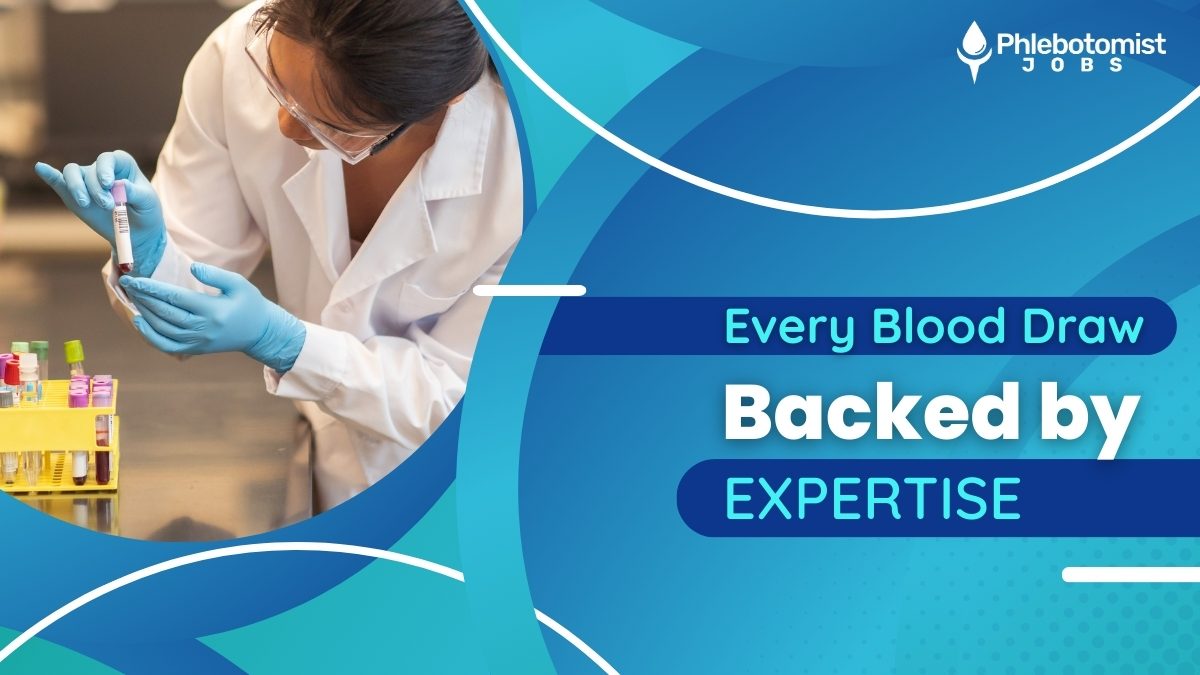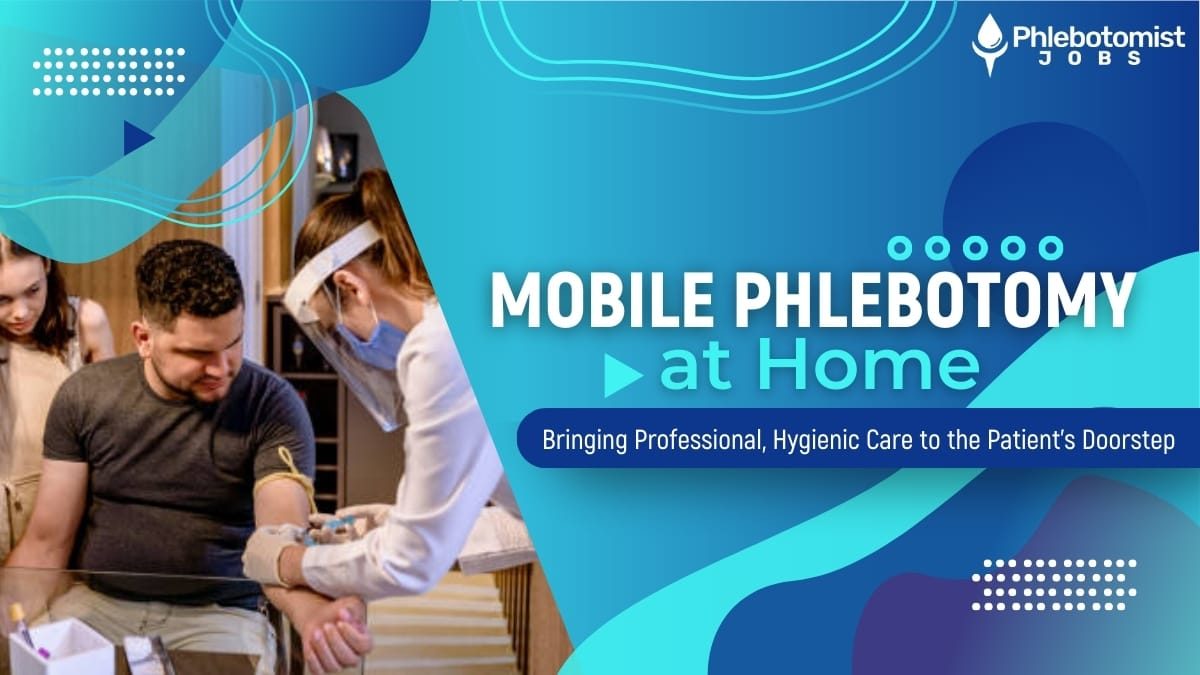Table of contents ▸
This industry has recently moved towards easier and more patient-friendly care. Mobile phlebotomists are one innovation that breaks barriers to healthcare and makes it convenient, accessible, and inclusive, such that even the most homebound and underprivileged populations can avail themselves of these services.
Mobile phlebotomists will indeed take innovation to how blood collection services are delivered.
The present paper explores their foundational role and the way they improve the accessibility of patient care as well as their influence on the whole of modern healthcare.
Role of Mobile Phlebotomists in Modern Healthcare
A certified blood draw technician trained to handle samples and draw blood, but unlike traditional clinics or hospitals, the mobile phlebotomist takes this work into the place where the patient is: be it home, the workplace, or elsewhere.
Why Mobile Phlebotomists Are Important
Accessibility is the most difficult challenge in the healthcare sector. Many people cannot easily visit medical facilities often, for routine blood work in most cases, because of such barriers as limited transport, busy schedules, or physical disabilities. Then, through mobile phlebotomy, this challenge is solved by presenting convenient flexible alternatives.
For patients, it means:
- Less stress and effort in receiving access to healthcare.
- Ability to prioritize physician health without derailing their day-to-day routine.
- Personalized care in a familiar, comfortable setting.
- Helping healthcare efficiently achieve better results for patients is mobile phlebotomy service: most patients are likely to finish their required diagnostic testing.
How Mobile Phlebotomists Operate
Mobile phlebotomists have carts and kits and follow very strict procedures that ensure the quality and safety of their clients. Among these is the following in the scope of work.
Samples labeled and stored properly
Follow infection control measures such as sterilizing equipment and wearing of personal protective equipment.
This way, patients, especially anxious ones, feel a lot at ease when blood draws are conducted.
These individuals generally work independently. Otherwise, they assess their schedules and logistics to ensure that various patients are served in a day.
Increasing Accessibility of Patient Care
Mobile phlebotomists are important because they can reach populations that traditional healthcare settings cannot reach as effectively.
Closing the Gaps in Rural and Underserved Areas
The absence of local health facilities in most rural setups limits access of local dwellers to simple routine tests. Mobile phlebotomists fill these gaps by taking necessary services directly to the patient’s doorstep, as they visit their various respective areas.
This helps in improvement in early detection of diseases through an early blood test, saves time and cost in traveling long distances, and helps in developing trust for healthcare among underserved populations.
Serving Homebound Patients
Older patients, the chronically ill, and post-surgical patients often cannot venture outdoors. In-home phlebotomy serves to immensely benefit such patients by taking services to a place that is comfortable for them. At least from this perspective, it increases their ability to access health care but also lets them know they have an important stake in a particular health-care situation.
Improving Employee Wellness
Many companies currently employ mobile phlebotomists to help promote employee wellness. With in-office blood draws for wellness checks or diagnostic testing, businesses help employees take control of their health without having to lose a day of work. It is a highly sought-after option in labor-intensive industries.
Advantages of Mobile Health
Mobile phlebotomy is one of the latest movements in a patient-centered approach to health care.
Improved Health Results
Such convenience encourages patients to seek out tests and treatments. As such, diseases are diagnosed early in time, chronic diseases are dealt with well, and the quality of life improves.
Erasing Inequities in Health Care
Many healthcare disparities are caused by socioeconomic status, geographic isolation, or physical inaccessibility. Mobile phlebotomists facilitate access to provide services in an environment free of barriers to people who may otherwise be excluded. This is particularly important for populations that had traditionally been barred from care.
Convenience and Flexibility
Patients today need healthcare systems that fit into their lives, rather than the other way around. Mobile phlebotomy meets this demand with personalized on-demand services. The flexibility increases patient satisfaction and creates stronger relationships between patients and providers.
Challenges Confronting Mobile Phlebotomists
As is the case with any emerging industry, mobile phlebotomy comes with a list of challenges.
Logistics Management
To balance patient visits from varied locations, there is a need for careful coordination. Tools for scheduling and route optimization of mobile phlebotomists do not compensate for constant updates and maintenance.
Safety Standards
Working outside controlled environments such as a hospital demands much more vigilance. Mobile phlebotomists are trained to follow strict infection control practices; however, some factors come into play, including limited space and variable conditions in patients’ homes.
Increasing Demand for the Workforce
With the growing popularity of healthcare mobility, the demand for mobilized phlebotomists is increasing. Competitive pay comprehensively offered training, and recognition of their different value to healthcare must be adopted as the approach to attracting and retaining such professionals.
The Future of Mobilized Phlebotomy
The demand for mobile phlebotomy will grow with healthcare focusing on the efficiency of accessibility and convenience.
Integration with Technology
Digital equipment is now helping mobile phlebotomists to be productive. For instance:
- Mobile applications streamline appointment scheduling and patient communication.
- Electronic health records : Let’s be able to integrate it with EHR systems so that the phlebotomist may update the records of the patients in real time.
- Remote diagnostics : Point-of-care testing should expand the scope of services offered by mobile phlebotomists.
Expanding Roles
Beyond phlebotomy, mobile phlebotomists might be assigned tasks and responsibilities such as vaccination or wellness screening. This would add versatility to them and make them even more beneficial to the patients and to the healthcare providers.
Conclusion
Mobile phlebotomists have and continue to change the delivery of healthcare through access, equity, and patient-centered care. Facilitating access to underserved populations, and homebound patients, and molding to meet the new demands that include customer convenience best enhances patient outcomes and reduces disparity.
As technology evolves and the attention on patient-centered care progresses, the leading voice will indeed be of the mobile phlebotomists ensuring that all of their services are available to even the most remote populations.
Stay connected for more healthcare job updates—follow us on our website, Phlebotomist Jobs, for the latest opportunities in mobile phlebotomy!
Follow us on Social Media: LinkedIn | Facebook | Twitter | Instagram








